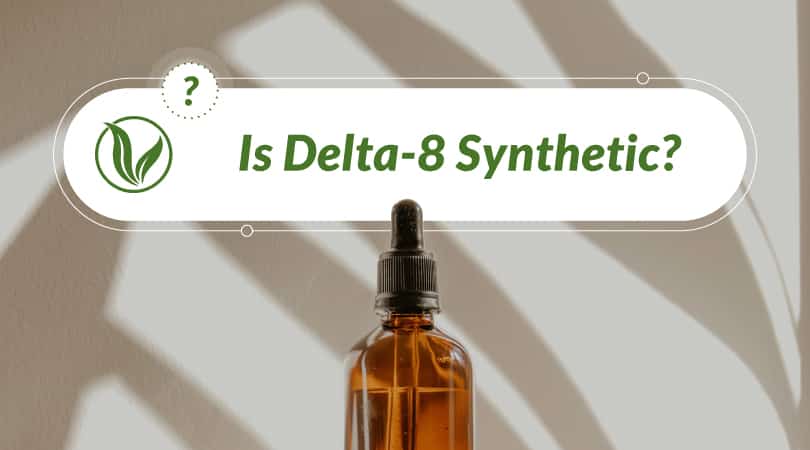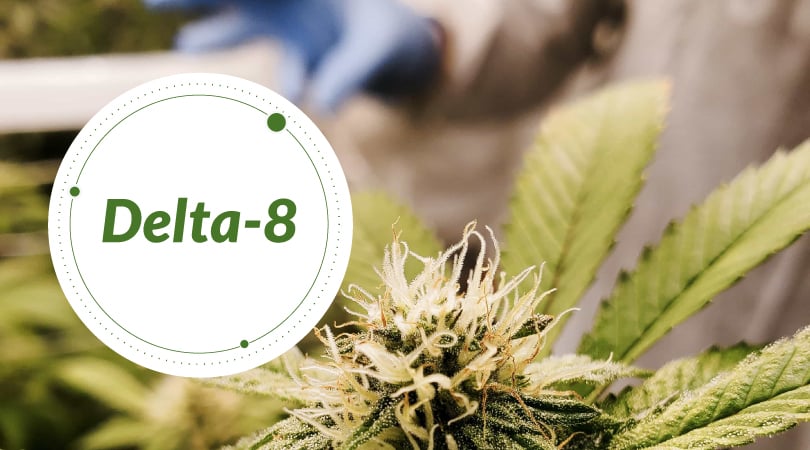
Is Delta-8 Synthetic?
The more you learn about the hemp plant and its components (such as CBD), the more you’ll realize that not all hemp-related products are the same. They come in many different forms (oils, salves, etc.), and not all of them are USDA certified organic or full spectrum like ours. As you continue to learn about this topic, you may see the word Delta-8 floating around, followed by a discussion over whether it’s synthetic or not. The quick answer is no, it’s not synthetic. To better understand what it is and why people get confused about whether it’s natural or synthetic, keep reading.
What Is Delta-8?
Delta-8 is a naturally occurring compound that is found in small traces in hemp and cannabis plants. Similar to CBD, Delta-8 is just one of the 100+ chemical compounds that are found in the cannabis plant. Delta-8 is very similar to Delta-9, which is the THC compound in the plant that’s known for giving users a “high” feeling. Although it has its similarities, Delta-8 has a different chemical structure and is found in very small amounts in the plant. For that reason, many people have described Delta-8 as the lighter and smoother cousin of Delta-9, due to the reportedly milder effects.
Although research is still ongoing, the possible benefits of Delta-8 include: a more relaxed state, help managing nausea, a boost in appetite, neuroprotection, and better sleep, among others. This, combined with the other natural benefits that you can receive from the hemp plant, is exactly why it’s gaining such popularity in the industry. As shown in this small study, participants used Delta-8 to treat a range of health and medical conditions, such as chronic pain, anxiety, and stress. As more research is done, more people are starting to try this new hemp-derived product.

Is Delta-8 Synthetic?
Now that we know what Delta-8 is, the question may arise: is it synthetic or natural? As mentioned, Delta-8 is a naturally occurring compound. That being said, the plant produces very little of it, making it harder to incorporate into products. That’s exactly why the Delta-8 compound is often extracted from hemp-derived CBD.
How does this work? Well, since cannabinoids are very similar in molecular structure, it’s not difficult to convert one into the other; this process is called isomerization. During this process, compounds are transformed into new cannabinoids with the same chemical composition, but different structures or configurations. This means that CBD can easily be transformed into Delta-8.
For this process to work, CBD must be dissolved in glacial acetic acid. As a result, CBD is first converted to Delta-9 THC. After 72 hours, half of the material becomes Delta-8 THC. For this process to be done properly, a third party should have the products tested and an experienced chemist should be in charge of the isomerization.
Although it‘s true that Delta-8 is produced in a laboratory, that doesn’t necessarily mean that it’s synthetic. Although modern technological advances are required to separate and extract the Delta-8 compound, it is not technically a synthetic cannabinoid because it is a cannabinoid organically found in nature.
Choosing a Great Delta-8 Product
While Delta 8 isn’t known for being dangerous, not all manufacturers follow safe extraction practices or isolation methods, which can result in contaminants in the product. That’s why when you’re shopping for Delta-8 products, is best practice to check if the company gets third-party lab tests.
At Vitality, we pay attention to every detail so that our clients get the best products possible. That is why we perform thorough due diligence over all of our suppliers, ensuring high quality that is backed up with independent verification. To see our certificate for our Delta-8 lab tests, click here.
